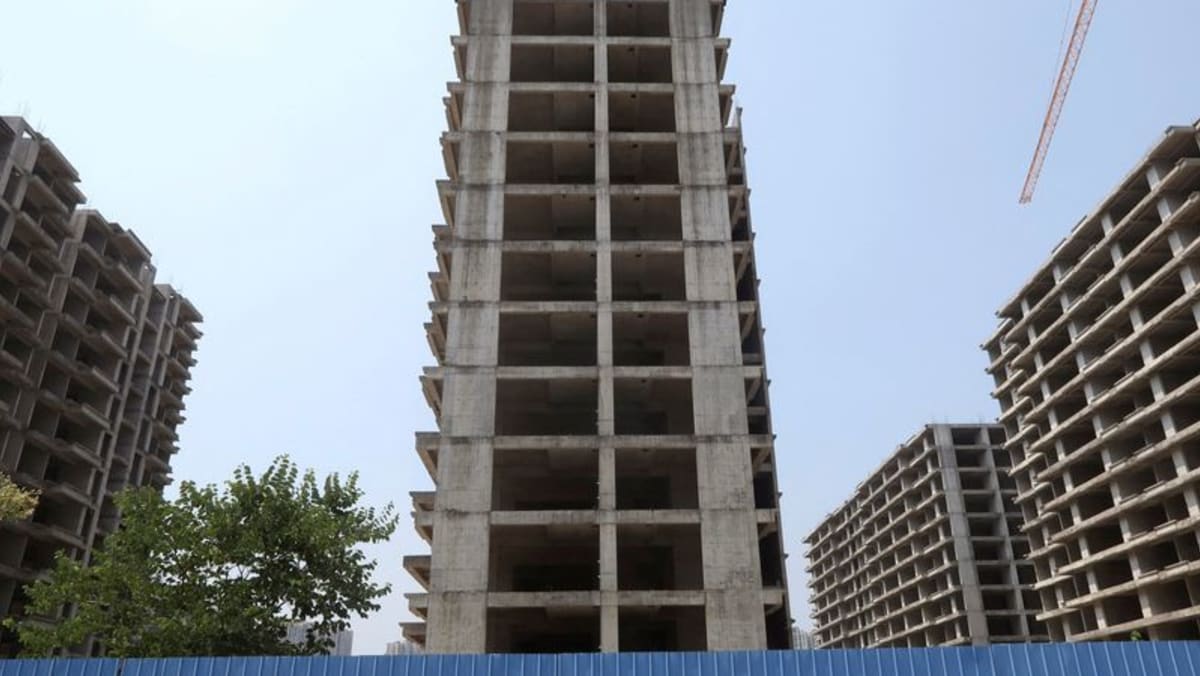Waning trust: China shadow banks pivot away from property to survive
SHANGHAI/HONG KONG : For more than a decade, Chinese developers’ debt-fuelled construction boom enriched the country’s shadow banks, who were eager to capitalise on the needs of an industry desperate for credit and too risky for traditional lenders.
Now, in the wake of a government clampdown on real estate firms’ debt binge, that credit demand has collapsed – and so too has the single biggest revenue stream for shadow banks, also known as trust firms.
China’s shadow banking industry – worth about $3 trillion, roughly the size of Britain’s economy – is scrambling for new business, including direct investment in companies, family offices and asset management.
It is also shrinking, with once-well-paid employees leaving for other jobs after scavenging for new deals. The industry’s plight is a sharp contrast to China’s main street financial firms, which the crisis has not yet seriously affected.
“Everyone was eating a mouthful of rice, surviving another day,” said Jason Hao, who left his job this year at a Shanghai trust firm after his pay plunged from as much as 4 million yuan ($570,000) a year to about 240,000 yuan ($34,000).
He is now working at an asset management company.
Data from industry-tracking website Yanglee.com shows 1,483 real estate-related trust products were sold in 2022 through the end of September, down 69.7 per cent from 4,891 during the same period last year.
The value of the 2022 deals was 117.2 billion yuan, down 77.9 per cent from 531.3 billion yuan. Real estate products accounted for 8.7 per cent of all trust products in September, compared with about 30 per cent in the same month the last two years.
The National Audit Office and China’s banking regulator have both been reviewing trust firm accounts and deals this year for risk, said three people with knowledge of the matter.
The National Audit Office and the CBIRC did not respond to requests for comment.
In an internal meeting in October, an executive at Shanghai Trust, a state-owned firm that once focussed on property, said revenue was down by almost half this year compared with the year before, according to two people with direct knowledge of the meeting.
The firm plans to focus on asset management and family offices to shore up its finances while pivoting away from lending to developers, once its core business, one of the people said.
Shanghai Trust did not respond to requests for comment.
The top priority for all trust companies now is “how to transition, what will let you survive,” said another trust firm employee, who like the other current employees interviewed for this article declined to be named because of the sensitivity of the matter.
CONTAGION RISK
Trust firms were dubbed “shadow banks” because of how they operated outside many of the rules that govern commercial banks. Banks in China sell wealth management products, the proceeds of which are channelled by trust firms to property developers and other sectors that are unable to tap bank funding directly.
Because of the risk, shadow banks could charge interest rates of up to 18 per cent, far higher than the typical 2 per cent to 6 per cent seen at banks at the height of the boom.
Concerns about outsized exposure to property developers have grown this year as the embattled sector in the world’s second-largest economy has slowed rapidly.
Beijing has stepped up support in recent weeks to undo a liquidity squeeze that has stifled the real estate market, which makes up a quarter of the Chinese economy and has been a key driver of growth.
OUT OF OPTIONS
At the trust unit of state-owned China Construction Bank (CCB) and Zhongrong International Trust, previously one of China’s largest shadow bankers, investing like private equity and venture capital funds has become more common, two people with direct knowledge of the companies said.
CCB Trust wants to invest in leading companies in niche fields; it recently invested in Beijing Tianyishangjia New Material Corp, which manufacturers materials used in train brakes, said one person who works at the company.
Zhongrong International Trust has been working with local governments, including Qingdao provincial authorities, to source early stage deals in intelligent manufacturing, an executive there said.
Jiangxi-based Avic Trust has been investing in waste-processing firms, including funding photovoltaic power stations that it then rents out, said a person with direct knowledge.
CCB Trust, Zhongrong International Trust and Avic Trust did not respond to requests for comment.
In some cases, trust firms are buying projects from struggling developers and hiring new managers to recoup their losses, according to corporate records and three people in trust firms who are aware of such acquisitions.
Ping An Trust, Zhongrong International Trust, Everbright Xinglong Trust and Minmetals International Trust have all bought project companies from struggling developers in the last few months, corporate records and company announcements showed.
Ping An Trust, Zhongrong International Trust, Everbright Xinglong Trust and Minmetals International Trust did not respond to requests for comment.
For Hao and other former trust employees, the companies’ search for stability feels familiar.
“My situation now is better than it was when I left the trust, but will never be as good as it was at the height of the boom when I was there,” Hao said.
($1 = 6.9905 Chinese yuan renminbi)
(Reporting Engen Tham in Shanghai, Clare Jim and Julie Zhu in Hong Kong; Editing by Sumeet Chatterjee and Gerry Doyle)
For all the latest business News Click Here

